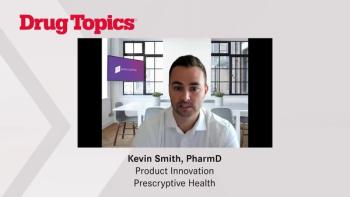
Pharmacy pulls off Katrina Rx data 'miracle'
A few days after Hurricane Katrina devastated the Gulf Coast, when it became obvious that thousands of evacuees no longer had their medications or even access to their prescription records, federal officials called on pharmacy to help build an emergency Rx database. The result has been called a technology miracle.
A few days after Hurricane Katrina devastated the Gulf Coast, when it became obvious that thousands of evacuees no longer had their medications or even access to their prescription records, federal officials called on pharmacy to help build an emergency Rx database. The result has been called a technology miracle.
The Katrina IT story began to unfold on Labor Day weekend when SureScripts was contacted by the office of David Brailer, M.D., national coordinator for Health Information Technology in the Department of Health & Human Services. The urgent question was whether pharmacy records from the disaster zone were available to help physicians and pharmacists figure out how to care for patients, said Kevin Hutchinson, CEO of the electronic prescribing firm created by the National Association of Chain Drug Stores and the National Community Pharmacists Association.
A check of SureScripts' records revealed that five drugstore chains had the largest market share in Alabama, Louisiana, and Mississippi: Albertsons, CVS, Walgreens, Wal-Mart, and Rite Aid. But when the firm surveyed its advisory council, Hutchinson said, all the other drugstore chains were ready to participate in any way to support construction of the Rx information database.
One key to executing the plan was to not reinvent the database wheel. Hutchinson said SureScripts decided to partner with Gold Standard Multimedia, which had already built a database of Medicaid patient medication histories for Mississippi and Louisiana. It also had a user interface and processes for insuring privacy, security, and authentication of users.
"Our first thought was to build a data structure that would work, but one of the goals of the service was to do a rapid deployment even if it wasn't perfect in the sense of having all the records," said Hutchinson. "We were able to use Gold Standard's infrastructure to build the service."
The database was restricted to the 150 zip codes in Katrina's path; they were supplied by the Federal Emergency Management Administration. The chains were then asked to pull all the patient records in the zip codes. The records covered about one million patients and almost five million prescription records in the database.
Based in Florida, Gold Standard staffers are all too familiar with hurricane havoc, so they gladly accepted the challenge of helping physicians and pharmacists aid Katrina victims, said CEO Russ Thomas. The first order of business was to take its Empower program-built for Florida Medicaid-and strip out the bells and whistles. "We took a fairly elegant application that does medication management, clinical alerts, and electronic prescribing and took it down to the level of an emergency management program. Thus the caregiver can pull off an evacuee's medication history and drill down into the drug data behind it, such as interactions and adverse reactions, needed to provide care. The records coming from Medicaid and the chains covering the previous 100 days were cleaned up by SureScripts and then pushed to us."
The final piece in the pharmacy technology triangle was RxHub, which provided data from the Rx claims side through pharmacy benefit managers. The live connection gives caregivers access to the most recent Rx data on patients. "This natural disaster has underscored the critical need for real-time access to the most up-to-date medication information at the point of care, regardless of where individuals are being treated," said RxHub CEO David McLean.
Within five days, the system was being tested as pilot sites worked with the information and tweaked the interface and data. By mid-September, up to 25,000 pharmacies had access to the database dubbed
Authorized clinicians and pharmacies using the system can view evacuees' Rx histories online, check for allergies and therapeutic duplications, and pull up clinical pharmacology drug information.
Newsletter
Pharmacy practice is always changing. Stay ahead of the curve with the Drug Topics newsletter and get the latest drug information, industry trends, and patient care tips.























